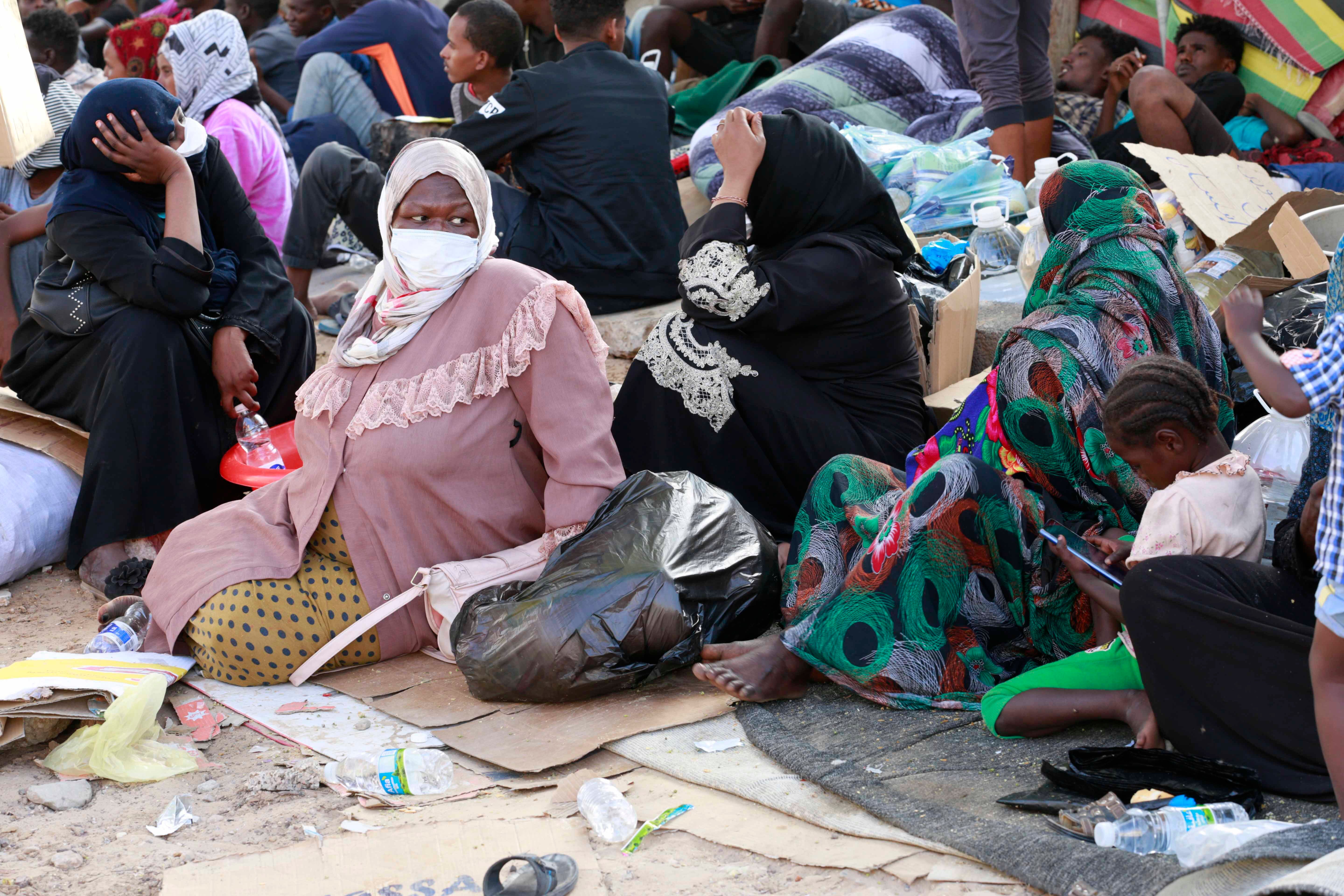Libyan rivals ink initial deal on pullout of mercenaries
The U.N. says forces from Libya's rival sides have reached an initial agreement on the withdrawal of foreign fighters and mercenaries from the North African nation

Your support helps us to tell the story
From reproductive rights to climate change to Big Tech, The Independent is on the ground when the story is developing. Whether it's investigating the financials of Elon Musk's pro-Trump PAC or producing our latest documentary, 'The A Word', which shines a light on the American women fighting for reproductive rights, we know how important it is to parse out the facts from the messaging.
At such a critical moment in US history, we need reporters on the ground. Your donation allows us to keep sending journalists to speak to both sides of the story.
The Independent is trusted by Americans across the entire political spectrum. And unlike many other quality news outlets, we choose not to lock Americans out of our reporting and analysis with paywalls. We believe quality journalism should be available to everyone, paid for by those who can afford it.
Your support makes all the difference.Libya’s rival sides reached an initial agreement Friday on the withdrawal of foreign fighters and mercenaries from the North African nation, the United Nations said, a key step toward unifying the warring sides in violence-wracked country.
The issue of the mercenaries and foreign fighters has long been an obstacle ahead of Libya's landmark general elections due in December.
Libya has been engulfed in chaos since a NATO-backed uprising toppled longtime dictator Moammar Gadhafi in 2011. The oil-rich country was later for years split between rival governments in the capital, Tripoli and the eastern part of the country. Each side is backed by different foreign powers and militia groups.
The U.N. mission mediating between the rivals said a 10-member joint military commission, with five representatives from each side, inked a “gradual and balanced” withdrawal deal Friday, at the end of three-day, U.N.-facilitated talks in Geneva
It added that the plan, coupled with an implementation mechanism, would be “the cornerstone for the gradual, balanced, and sequenced process of withdrawal” of the mercenaries and foreign forces.
Jan Kubis, the U.N. special envoy for Libya, welcomed the move as “another breakthrough achievement.”
Libya's split came into the forefront in 2019, when self-styled military commander Khalifa Hifter, allied with the east-based administration, launched an offensive to take Tripoli from armed militias loosely allied with the U.N.-supported but weak government in the country's capital.
Hifter was backed by Egypt the United Arab Emirates, Russia and France. But, his 14-month campaign and march on Tripoli ultimately failed in June 2020, after Turkey sent troops to help the U.N.-supported administration, which also had the backing of Qatar and Italy.
After the fighting largely stalemated, subsequent U.N.-sponsored peace talks brought about a cease-fire last October and installed an interim government that is expected to lead the country into the December elections. The cease-fire deal also included the departure of foreign forces and mercenaries within three months — something that was never implemented.
Friday’s deal “creates a positive momentum that should be built upon to move forward towards a stable and democratic stage, including through the holding of free, credible and transparent national elections on 24 December, with results accepted by all,” Kubis said.
After inking the deal in Geneva, the rival sides said they would go back and communicate with their base and concerned international parties “to support the implementation of this plan and the respect of Libya’s sovereignty.”
The deal also called for the deployment of U.N. observers to monitor the cease-fire before the implementation of withdrawal plan.
In December, then U.N. acting envoy for Libya Stephanie Williams estimated that there have been at least 20,000 foreign fighters and mercenaries in Libya over the past few years, including Russians, Syrians, Sudanese, and Chadians.
Though the agreement on mercenaries is seen as a step forward, earlier this month, Libyan lawmakers in the east dealt a setback to the peace process by voting to reschedule the parliamentary elections for January, a month later.
The U.N.-brokered roadmap has set both parliamentary and presidential elections for Dec. 24. and it wasn't immediately clear how the lawmakers' move would translate into a postponement of the vote.